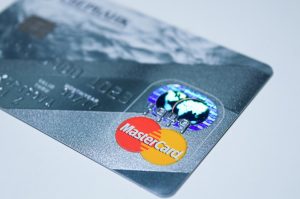In a significant development, Mastercard has received long-awaited approval to broaden its services in China's expansive payments market, marking a substantial step forward for the US credit card giant. Through its joint venture with NetsUnion Clearing Corporation (NUCC), Mastercard is now able to start a bank card business in China thanks to the approval of China's central bank and financial regulator.
This approval comes over three years after regulators initially agreed to permit Mastercard and NUCC to establish a domestic bank card clearing institution. According to the People's Bank of China (PBOC), Mastercard is now authorized to issue Chinese yuan-denominated bank cards under its own brand. This move provides Mastercard with direct market access, enabling it to process and collect fees on a more extensive range of transactions.
China, known for being an almost cashless society with $434 trillion in electronic transactions annually, has dominant digital wallet platforms, Alipay and WeChat Pay, accounting for a combined 91% market share. Mastercard's entry into the Chinese market positions it to tap into this vast and dynamic landscape.
The approval aligns with China's ongoing efforts to open up its economy to foreign businesses. Mastercard CEO Michael Miebach emphasized the significance of this milestone in a statement. Recently, Miebach participated in a CEO summit on the sidelines of the Asia-Pacific Economic Cooperation (APEC) forum, where he joined other business leaders, including Tesla CEO Elon Musk and Apple CEO Tim Cook.
Notably, the approval coincided with Chinese President Xi Jinping's meeting with US President Joe Biden, where Xi emphasized China's willingness to be a "partner and a friend" of the United States. The timing of this approval, following high-level talks between the two nations, adds a diplomatic dimension to Mastercard's expansion into the Chinese market.
President Xi's interaction with American business leaders during a dinner in the San Francisco Bay Area also sheds light on China's ongoing efforts to strengthen business ties with the United States. Mastercard's approval to issue yuan-denominated cards further exemplifies China's commitment to fostering collaboration with foreign companies.
Mastercard now stands as the second foreign company to secure direct market access in China, following American Express, which obtained its license in 2020. While Visa has applied for a license to offer its own cards, it has yet to receive approval or indications on timing, according to the company's most recent annual report.
Mastercard's approval to expand its offerings in China represents a strategic and diplomatic milestone, providing the credit card giant with unprecedented access to one of the world's largest and fastest-growing payment markets.
























